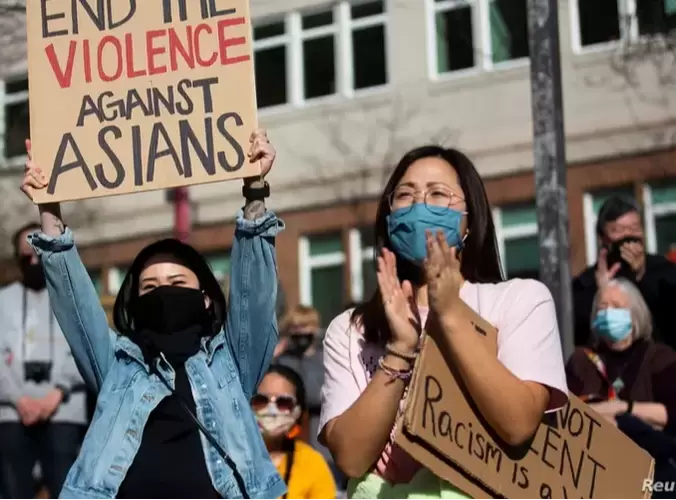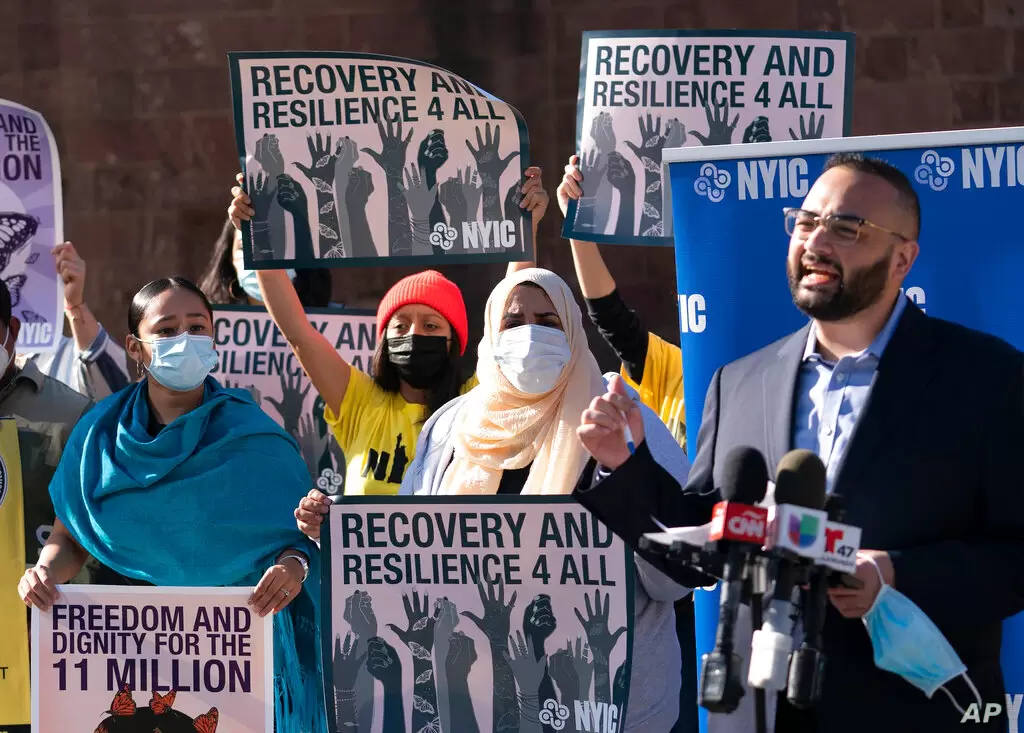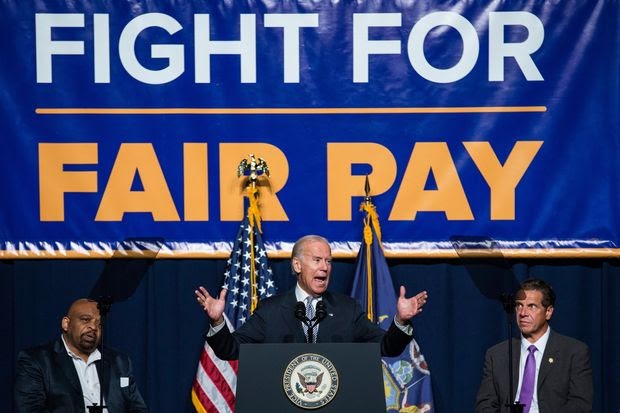LISTSOur biweekly lists lay out notable issues in the news and tell you what you can do about them.
|
SUBSCRIBE TO EMAIL UPDATES:
|
|
Hi Teen Resisters, These past weeks have had a lot of scary events. We hope that you are taking care of yourselves and staying safe. We're focusing most of this list on resources related to the wave of anti-Asian hate sweeping the country right now, including the horrific shooting in Atlanta last week. We've linked a ton of resources for action, donations, etc., in different categories. We also want to note the mass shooting in Boulder, CO this week. It occurred in the final stages of publishing this list, so we don't have extensive action yet, but we will link these pre-existing resources:
We're sending you love and light amid these difficult times and also reminding you that hope is truly on the horizon. Peace and power, TR what went down
While both the President and Vice President have condemned the shootings, along with Long’s church, there is still so much more to be done on a broader scale. You can check in on those in your life who are affected anti-Asian racism and offer support, but never force someone to have a conversation they don’t want to have. Stop AAPI Hate is one of many organizations working to document and prevent anti-Asian racism. They have resources including reporting forms and safety tips available in multiple languages. They also have a Public Accommodation Law Survey document where you can check what protections exist in your state. The National Asian Pacific American Women’s Forum has petitions along with educational resources as well. Action Items:
Resource hubs:
Organizations to donate to and get involved with:
Amidst everything, the government has introduced a crime bill, the sweeping Police, Crime, Sentencing and Court Bill, which would give police significantly more power in their response to nonviolent protests and demonstrations. Yet this approach is exactly the opposite of what lead activists in London are looking for. As evidenced by Everard’s murder, police can be and often are perpetrators of violence against women. Many women don’t feel any safer — or even feel less safe — while in the presence of police. Considering this newly sparked cultural firestorm, there has been significant pushback against the government’s solution of increasing police power. WHAT YOU CAN DO:
This list was written by Leo Levine, Sonia Chajet Wides, Hailey Dickinson, and Kate Griem, with org contributions from Nicole Kim. And, before you go....
0 Comments
Hey Teen Resisters! Hope you and your families are safe and well. We'll keep our greeting short this week, since we have a lot to cover. We break down the reopening of facilities for unaccompanied minors, the filibuster, the Ultra-Millionaire Tax Act, the recent Syria airstrikes, a stimulus update, and the Background Check Expansion Act — and provide tons of easy action for you to take to impact them — below. Happy reading/calling/signing/activisting! Peace & power, TR What Went Down
It is through this part of the immigration system that the Trump-era policy of separating families and detaining them in cages occurred, and it is also through this part of the system that deportations and raids occur. CBP and ICE also control most detention centers, where adults and families without visas are held when they are trying to come to the United States. The other part of the system is the Office of Refugee Resettlement (ORR), which is responsible for people classified as refugees and, notably, unaccompanied minors who arrive at the border alone. ORR is run by Health and Human Services (HHS) and is, as Morales Rocketto describes it, “the gentler immigration agency.” Mark Weber from HHS said that the Biden admin is “moving away from the ‘law-enforcement focused’ approach of the Trump administration to one in which child welfare is more centric.” (Washington Post) When unaccompanied minors arrive in the United States, they are typically housed by the government before being reunited with sponsors, typically family members or friends who already live in the US (Axios). While the children stay in the shelters, ORR works with them “to identify and conduct background checks on the sponsors,” and then the children are sent to live with their sponsors. Last month, the Biden admin reopened two facilities for unaccompanied minors (the first of the administration) that they said needed to be reopened due to limited capacity from COVID in other facilities, as well as an uptick in unaccompanied minor arrivals. Again, these facilities exist to house unaccompanied children before they can reach their sponsors in the US. One of the facilities, Carrizo Springs in Texas, is run by HHS/ORR and a nonprofit contractor, which, as Morales Rocketto puts it, “are better than ICE/CBP by a long shot.” Carrizo Springs was previously and similarly used as a “temporary influx shelter” (Forbes) by the Trump admin in summer 2019. The other facility being reopened is in Homestead, FL. The Homestead facility is different because it is run by a for-profit organization under the parentage of Caliburn International, which has former Trump Chief of Staff John Kelly on its board. Homestead was shut down during the Trump administration after a lot of organizing, because its conditions were discovered to be extremely bad. At the time of Carrizo Springs’ closing, Denise Bell of Amnesty International USA said, “These temporary emergency facilities arose because of the government’s deliberate policy to punish children, resulting in the prolonged and indefinite detention of thousands of children… Temporary emergency shelters are never a home for children.” Emergency shelters have been the subject of criticism from immigration and human rights advocates for years due to their often shoddy conditions, cost, and lack of transparency. It is important to recognize the differences in these parts of the system if we hope to change those systems. The emergency facilities are different from Trump-era detention centers and their cages, because these children are not being processed through CBP/ICE, and have not been forcefully separated from their families. The cages are gone. The facilities do have the intention of “caring” for children before they reach sponsors, and include more amenities. Under the current system, the facilities also prevent children from ending up in CBP facilities like they were in 2019. Biden has said that he hopes the facilities won’t stay open long. However, activists say that the conditions are far from fully humane in these facilities, and, for reasons such as cost and lack of transparency, are a bad start to the Biden admin’s policies, which promised to innovate. Additionally, it seems like bad judgement to reopen shelters used by the Trump administration, and therefore create a visual connection to that administration’s immigration policies, famous for their cruelty. “The system is built on jailing families and children,” Morales Rocketto writers, “The only way to fix this is to change the system.” Advocates and lawyers have noted that the emergency shelters are often in remote areas away from public view. The Biden admin has inherited a “poisoned” immigration system and has a big task ahead of them: to redesign the refugee and asylum system. Immigration advocacy groups such as Detention Watch advocate that we must stop detaining families and children to transform this system — not just stop separating them. You can read a document from them explaining this here. Linda Brandmiller, a San Antonio immigration lawyer, told The Washington Post that the Biden administration “should not be reviving old systems but looking for new solutions.” As immigration attorney and former Congressional candidate Jessica Cisneros puts it, “This shouldn’t be framed as: keep kids confined in tents or send them out to the streets by themselves unsupervised… there are and will always be alternatives to detention.” Many have also noted that an uptick in unaccompanied minor arrivals is likely because families have been deterred from arriving together as a result of the Trump-era family separation policies and a history of family detainment. Immigrants often believe that to send their children alone is the safest option. As with most immigration-related issues, there are root causes that must be addressed. There are a few things we can ask of the Biden administration right now:
For more information:
WHAT YOU CAN DO:
Since that era, Senators don’t actually have to maintain active debate on the Senate floor to prevent a bill from going to vote. That means you can filibuster a bill without grinding all other legislative procedures to a halt, and it’s much less of a public spectacle. Under these rules, filibusters are easy and painless to use — and have been used often. They were the tool Senate Republicans used to thwart or compromise nearly every part of Obama’s legislative agenda: immigration reform, climate action, the Affordable Care Act, and Dodd-Frank. Republicans also used the filibuster the shrink the size of Obama’s 2009 stimulus package — sound familiar? The filibuster is extremely relevant in this political moment. It’s thanks to the filibuster that Congress had to pass the Covid stimulus, the American Recovery and Relief Plan, through budget reconciliation — a process not subject to the filibuster. This categorization forced Democrats to knock off the $15 minimum wage provision from the package. And unless abolished or reformed, the filibuster is sure to be a huge roadblock to other elements of the progressive agenda, like H.R.1, the For the People Act, which packs dozens of democracy reforms, or sweeping climate legislation like the Green New Deal. You might wonder — is the filibuster only a bad thing when the good guys are in power? There is always the risk that Republicans might be able to pass more bad legislation in the future if a Democratic minority couldn’t filibuster it. But that hypothetical isn’t enough to balance the concrete imperatives of this moment. Our country needs big changes, now, and we know that the filibuster is in the way. In any regard — no matter how control of Washington might oscillate over time — the filibuster is an antidemocratic, antimajoritarian institution. It allows a minority of representatives, who could very well represent an even smaller minority of the American public, to paralyze legislation supported by the majority of our elected representatives and, in many cases, this country’s population. In a country where Democrats consistently win the popular vote in national elections, it’s also not surprising that minority rule is Republicans’ cup of tea (think gerrymandering — or the composition of the Senate, where members of smaller, Republican-leaning states are overrepresented). But when Democrats are the majority, we want to be able to rule by majority. WHAT YOU CAN DO:
The bill was introduced March 1 by Senator Elizabeth Warren and Representative Pramila Jayapal, along with fellow progressive Senator Bernie Sanders and a number of other Democrats. Wealth taxes were a big part of both Warren and Sanders’ campaign platforms in their run for president in the 2020 Primary Election, and Warren proposed this policy in 2019 as well. The COVID-19 pandemic has emphasized and made worse the wealth gaps that we were already seeing before the pandemic. These gaps have never needed to be addressed as much as they do now, so what can you do to help? WHAT YOU CAN DO:
The President did not confer with Congress, or much less seek congressional approval, before he launched the airstrikes against Syria. His failure to work with Congress has raised serious issues as to whether the Syrian attack violated the law and perhaps even the Constitution. Senator Tim Kaine released a statement following the airstrikes: “The American people deserve to hear the Administration’s rationale for these strikes and its legal justification for acting without coming to Congress. Offensive military action without congressional approval is not constitutional absent extraordinary circumstances. Congress must be fully briefed on this matter expeditiously.” Senator Bernie Sanders stated on Twitter. “I am very concerned by last night’s strike by U.S. forces in Syria. The president has the responsibility to keep Americans safe, but for too long administrations of both parties have interpreted their authorities in an extremely expansive way to continue war. This must end.” This episode so early in the tenure of the Biden administration has again raised the issue of whether, in recent decades, the president of the United States has gone too far in ordering military action against foreign countries without congressional authority. The Constitution establishes that war powers should be shared between the executive and legislative branches of our government, yet in recent times Congress through — legislation and otherwise — has ceded substantial power to the presidency. In 1973, Congress passed the War Powers Act, designed to limit the U.S. president's ability to initiate or escalate military actions abroad. Yet that act has never been truly enforced, either by the Supreme Court or by Congress. Senator Kaine is pushing for a new War Powers Act. He has introduced a bill in the Senate to repeal the congressional authorizations for use of the military force against Iraq made under the terms of the War Powers Act. The Biden airstrike against Iran and initially negative reactions from members of Congress may mark the beginning of further steps to restore the sharing of war powers between the President and Congress. WHAT YOU CAN DO:
And in some more major positive news, the stimulus package that passed the Senate included a student minimum loan forgiveness from taxation through Jan 1, 2026 for all student loans. The language of the exemption is broad and potentially creates a foundation for further strides in cancelling student debt. You can find more specific info on the changes in this article. Despite its many benefits, more progressive members of the Democratic party are pointing out that the bill falls short in one key place: minimum wage. One of President Biden’s primary promises during his campaign was to raise the minimum wage to $15. This is so that current college students, millennials, and others who are not making enough to positively contribute to our economy through housing, consumerism, and other facets are able to. In January, Biden released his $1.9 trillion COVID-19 stimulus package which included a federal minimum wage of $15 per hour (twice the current minimum wage) and eliminated the tipped minimum wage and subminimum wage for those with disabilities. Unfortunately, the COVID-19 stimulus package passed Saturday without the $15 minimum wage section. To push for a higher federal minimum wage look at the action below! Definitions Tipped Minimum Wage: Those who make $30 or more off of tips monthly have a minimum wage of $2.13 per hour as of 2019. Subminimum Wage: If authorized by the US govt, a company may pay disabled persons a subsidized minimum wage. WHAT YOU CAN DO:
H.R. 8 / S.529, the Bipartisan Background Checks Act / Background Check Expansion Act, would require a background check on every sale, ensuring that people prohibited from purchasing firearms cannot exploit loopholes and purchase guns through an unregulated sale at a gun show, online, or from an unlicensed seller. In addition, individuals would no longer be able to cross state lines solely to purchase a firearm in a state with less stringent background checks. Closing these background check loopholes is critical to reducing gun violence throughout the United States. Additionally, H.R. 1446 / S. 591 the Enhanced Background Checks Act / Background Check Completion Act would provide the FBI more time to complete background checks and ensure that people prohibited from possessing firearms are not able to obtain them by default because of an incomplete background check. This deadly loophole in existing law was exploited by a white supremacist who killed nine people at the Mother Emanuel AME Church in Charleston, South Carolina. Background checks are a key first step to getting guns off streets and out of schools, saving lives and preventing inarticulable grief. Gun violence is not an abstract policy idea; to America’s youth, it is imminent and urgent. Teens Resist was founded on the notion that we must fight back against the senseless devastation around us — no matter how tangled, complex, or hopeless it may seem — because the world shaped by politicians and activists now is the world in which we will grow up. We urge you to pass H.R. 8 / S. 529 the Bipartisan Background Checks Act / Background Check Expansion Act and H.R.1446 / S.591 the Enhanced Background Checks Act / Background Check Completion Act, as soon as possible. Learn more from two excellent Giffords info sheets, found here and here. WHAT YOU CAN DO:
This list was written by Sonia Chajet Wides, Lily Seltz, Hailey Dickinson, Sarah Germana, Sammi Desch, and Kate Griem.
|
UPdatesThese lists include featured organizations, scripts, numbers, news updates and inspirational activists. Archives
January 2022
Categories |
About |
Content |
|








 RSS Feed
RSS Feed
